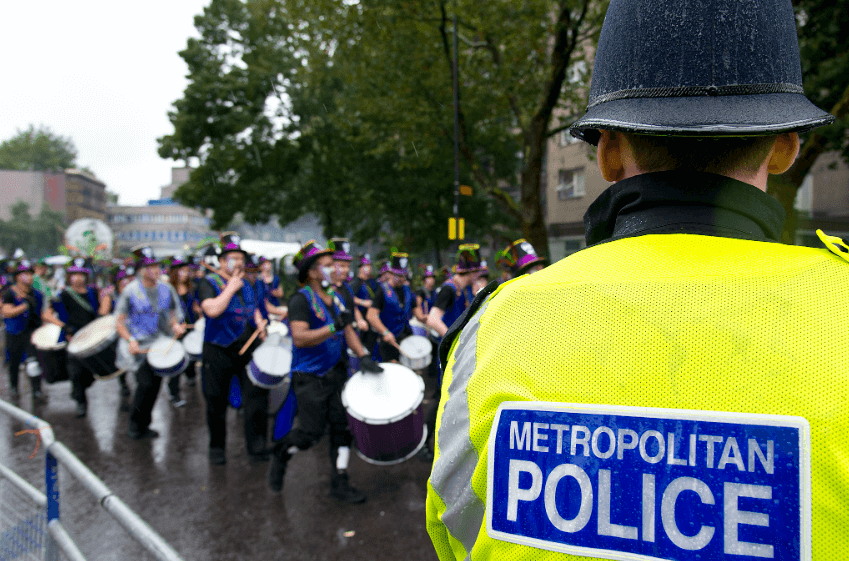Sergeant Ibraahim Russul Saib
The Met has over 186 different jobs within the organisation. If you don’t like one job, you can pick another one!

Metropolitan Police Sergeant Ibraahim Russul Saib talks about the training officers are given to equip them to police large scale events, his key highlights from policing the Notting Hill Carnival and what made him want to become a police officer.
What kind of reactions do you get from the local community at Notting Hill Carnival?
The majority of the reactions are positive from the community who understand that we're just there to keep them safe and we have a job to do.
Why do you think it’s important for the Met to have a visible presence at events like this?
At the end of the day, it’s a large-scale event and the second biggest street carnival in the world. We have a duty of care to the public and party goers to keep them safe and ensure everything runs smoothly, which we do by working in partnership with the organisers and local community.
What kind of incidents has your team had to deal with?
I've been policing Notting Hill Carnival since 2010 in a variety of roles. We deal with everything from supporting people who want to celebrate and finding lost children to medical emergencies in the middle of a dense crowd where we had to carry them out on a stretcher, pushing through the crowd to get to the ambulance crew.
How are officers trained to deal with incidents at events like these?
Public order officers get training every year to deal with these sorts of events down at our training site in Gravesend. Territorial Support Group (TSG) officers would ordinarily get training around every 5 weeks in how to do everything from casualty evacuations to dealing with violent individuals and tactics around hostile crowds.
What made you join the police?
I've always had an interest in working for the emergency services. My interest was cemented at university when I studied Criminology and Psychology, where some of my modules were run by current serving police officers.
What entry route did you join through?
I joined in 2008 via what many would call the traditional route – the Initial Police Learning and Development Programme (IPLDP), however this since been replaced with the Police Constable Entry Programme (PCEP). The great thing is that there are a number of different entry routes into policing now, making it easier for people from all different backgrounds to find a route that suits them.
You can explore the different entry routes here.
What’s your career highlight so far?
I've been very fortunate so far in that I've worked with brilliant teams and always had brilliant supervisors, which is why I waited to go for promotion as they set the bar high. I've worked on a plain-clothes proactive team in Westminster after my initial stint on response team, before moving to the Territorial Support Group (TSG) for almost 8 years until I took promotion in 2020. I highly recommend joining the TSG to everyone as it has given me some great skills to aid me for the rest of my career - by far the highlight for me!
What advice would you give to someone thinking of applying to join the Met?
Although it is true that nothing beats a great arrest, especially when you catch someone in the act…the best advice I would give to anyone is the same advice I remember hearing when I went to an open day for the Met - “The Met has around 186 different jobs (probably more now) within the organisation, if you don’t like one job, pick another one.”
Interested in joining the Metropolitan Police Service?
Head to their Careers website to see what roles they have on offer right now.
Metropolitan Police Service careers